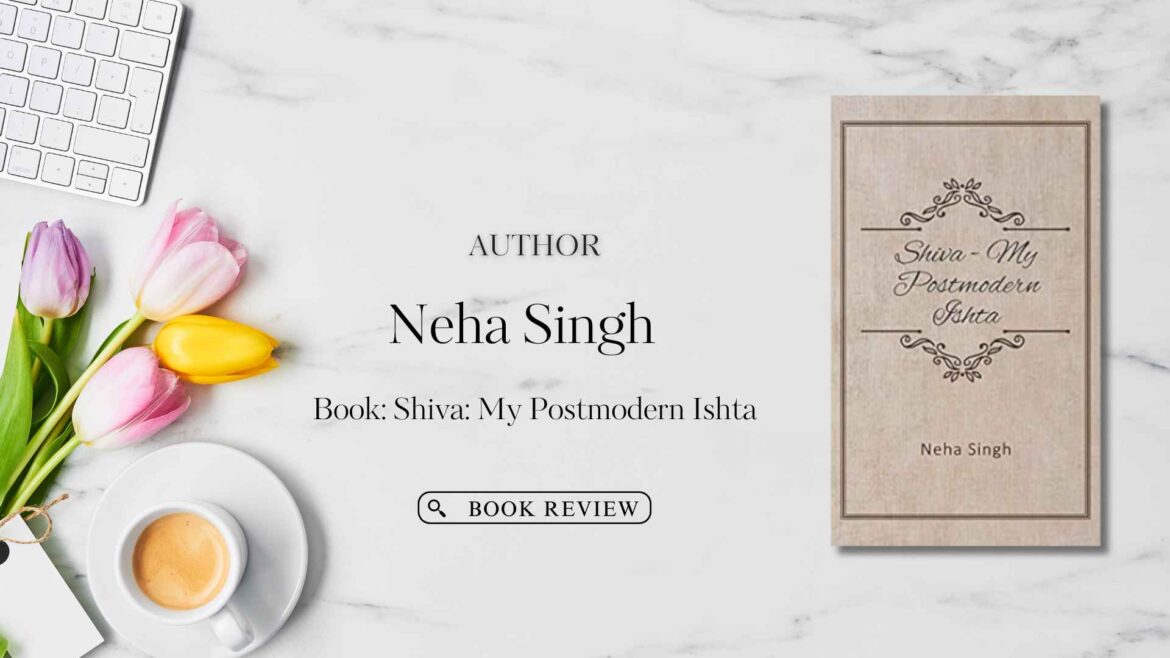Shiva: My Postmodern Ishta by Neha Singh is a powerful reflection on the enduring spiritual and cultural relevance of Hinduism. It particularly focuses on the figure of Lord Shiva. The book serves as both a personal testament to the author’s own journey with faith and a broader call for modern Hindus to reconnect with their religious roots. This is especially important in an increasingly secular and materialistic world. Singh explores Lord Shiva beyond traditional religious contexts. She positions him as a beacon of strength, wisdom, and resilience for today’s world.
The author uses her personal relationship with Lord Shiva to explore larger themes of identity, faith, and spirituality. In a time when people often misrepresent or misunderstand Hinduism, Singh’s work reminds us of the profound and enduring power of Indian spirituality. This book speaks to those who have felt disconnected from their heritage and urges them to embrace their religious traditions with renewed passion and understanding.
The book is not merely a religious text; it is a deeply personal expression of Neha Singh’s gratitude and love for Lord Shiva and Hinduism as a whole. In the opening lines, she acknowledges the strength and perseverance of Hinduism in India, despite the many challenges and negative forces it has faced throughout history. This sentiment sets the tone for the rest of the book. The author emphasizes the importance of reconnecting with spiritual roots in an era of globalization and modern distractions.
Singh draws attention to the fact that while India may not always be economically dominant on the global stage, it consistently produces some of the world’s most brilliant minds across fields such as science, technology, business, and the arts. She attributes much of this success to the spiritual and philosophical framework that Hinduism provides. The book presents the teachings of Lord Shiva, in particular, as a source of inspiration and guidance in personal and professional endeavors.
One of the core messages of Shiva: My Postmodern Ishta is that Lord Shiva embodies qualities that are especially relevant in today’s world. Known as the destroyer of evil and the transformer of the universe, Shiva represents the endless cycle of creation, preservation, and dissolution. Singh underscores these aspects of Shiva’s character, positioning him as a powerful metaphor for overcoming adversity and embracing change.
In modern times, individuals face the pressures of materialism, societal expectations, and personal struggles. Shiva’s calmness and stoic wisdom provide a guiding light. His teachings are not just spiritual, but practical. They emphasize detachment, self-discipline, and the importance of maintaining inner peace amidst external chaos. Singh’s portrayal of Shiva reflects these teachings, urging readers to find balance in their lives and embrace challenges with equanimity.
Neha Singh’s book is also a powerful call to modern Hindus to reconnect with the profound wisdom embedded in their religious practices. She laments that, in recent times, many have distanced themselves from the teachings of Hinduism. This is either due to societal pressures or a lack of understanding. Singh passionately argues that Hinduism is not just a set of rituals or beliefs. It is a deep philosophical system that offers a path to personal growth, inner peace, and social harmony.
She urges readers to rediscover the richness of their spiritual heritage. She cites the importance of practicing one’s religion in a way that is meaningful in the modern world. In this context, Shiva: My Postmodern Ishta serves as both a reflection on the timeless relevance of Hindu philosophy and a practical guide for incorporating these teachings into daily life. The book’s emphasis on spirituality as a living, evolving practice, rather than a static tradition, is one of its most compelling aspects.
The book also tackles the challenges faced by Hindus in today’s world. It especially addresses the growing influence of global capitalism, secularism, and materialism. Neha Singh writes about the emotional and spiritual toll these forces have taken on individuals. This is particularly true for those who feel alienated or marginalized by mainstream narratives.
In her view, the rise of religious acknowledgment by the Indian government is a positive step. It helps reclaim Hinduism’s rightful place in the cultural and spiritual life of the nation. Singh calls for a collective effort to reinstate Hindu philosophy as a source of strength and resilience. This is especially important for those who have been “ignored, abused, molested, and ravaged by the ugly, canceling, capitalist, and cancerous forces of the past.” She frames this political and cultural reclamation as a defense of Hinduism. It is also an essential step for the collective well-being of modern society.
One of the book’s most thought-provoking sections explores how Lord Shiva’s presence and influence continue to shape individuals’ lives in the postmodern world. Singh emphasizes that Shiva’s teachings are alive in the way individuals approach their careers, relationships, and personal growth. These teachings are not confined to ancient texts.
Shiva’s ability to adapt to changing circumstances and his association with both destruction and creation resonate deeply in an era of constant change and uncertainty. Whether dealing with the challenges of work, family, or personal development, Singh encourages readers to draw strength from Shiva’s wisdom. She urges them to apply it to contemporary issues. The author explores Shiva’s various attributes, such as his asceticism, his role as a cosmic dancer, and his deep meditative practices. This offers readers a multidimensional understanding of the deity. This exploration highlights Shiva’s relevance in today’s world.
Shiva: My Postmodern Ishta is more than just a book about Hinduism or Lord Shiva. It is an urgent call to action for modern Hindus to reconnect with their spiritual roots. It urges them to reclaim their cultural heritage. Neha Singh’s heartfelt tribute to Shiva and Hindu philosophy is both a personal reflection. It is also a collective plea for spiritual awakening.
This book encourages readers to engage with their religion in a way that is meaningful and relevant in today’s world. Apologies for the confusion! Here is the text broken into shorter sentences:
By emphasizing the timeless wisdom of Lord Shiva, Singh offers a powerful message. This message highlights resilience, personal growth, and the importance of staying rooted in one’s cultural and spiritual identity. In an age when many have lost touch with their spiritual heritage, Shiva: My Postmodern Ishta serves as a reminder. It comes at a timely moment. It highlights the enduring power of Hinduism and the transformative potential it holds for both individuals and society at large.



